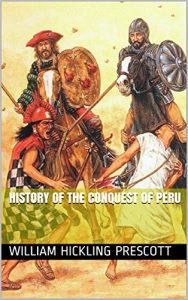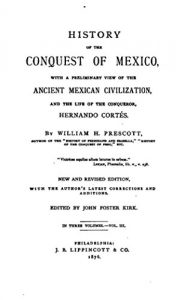Of the numerous nations which occupied the great American continent at
the time of its discovery by the Europeans, the two most advanced in
power and refinement were undoubtedly those of Mexico and Peru. But,
though resembling one another in extent of civilization, they differed
widely as to the nature of it; and the philosophical student of his species
may feel a natural curiosity to trace the different steps by which these two
nations strove to emerge from the state of barbarism, and place
themselves on a higher point in the scale of humanity.--In a former work I
have endeavored to exhibit the institutions and character of the ancient
Mexicans, and the story of their conquest by the Spaniards. The present
will be devoted to the Peruvians; and, if their history shall be found to
present less strange anomalies and striking contrasts than that of the
Aztecs, it may interest us quite as much by the pleasing picture it offers of
a well-regulated government and sober habits of industry under the
patriarchal sway of the Incas.
The empire of Peru, at the period of the Spanish invasion, stretched along
the Pacific from about the second degree north to the thirty-seventh
degree of south latitude; a line, also, which describes the western
boundaries of the modern republics of Ecuador, Peru, Bolivia, and Chili.
Its breadth cannot so easily be determined; for, though bounded
everywhere by the great ocean on the west, towards the east it spread out,
in many parts, considerably beyond the mountains, to the confines of
barbarous states, whose exact position is undetermined, or whose names
are effaced from the map of history. It is certain, however, that its breadth
was altogether disproportioned to its length.
the time of its discovery by the Europeans, the two most advanced in
power and refinement were undoubtedly those of Mexico and Peru. But,
though resembling one another in extent of civilization, they differed
widely as to the nature of it; and the philosophical student of his species
may feel a natural curiosity to trace the different steps by which these two
nations strove to emerge from the state of barbarism, and place
themselves on a higher point in the scale of humanity.--In a former work I
have endeavored to exhibit the institutions and character of the ancient
Mexicans, and the story of their conquest by the Spaniards. The present
will be devoted to the Peruvians; and, if their history shall be found to
present less strange anomalies and striking contrasts than that of the
Aztecs, it may interest us quite as much by the pleasing picture it offers of
a well-regulated government and sober habits of industry under the
patriarchal sway of the Incas.
The empire of Peru, at the period of the Spanish invasion, stretched along
the Pacific from about the second degree north to the thirty-seventh
degree of south latitude; a line, also, which describes the western
boundaries of the modern republics of Ecuador, Peru, Bolivia, and Chili.
Its breadth cannot so easily be determined; for, though bounded
everywhere by the great ocean on the west, towards the east it spread out,
in many parts, considerably beyond the mountains, to the confines of
barbarous states, whose exact position is undetermined, or whose names
are effaced from the map of history. It is certain, however, that its breadth
was altogether disproportioned to its length.








